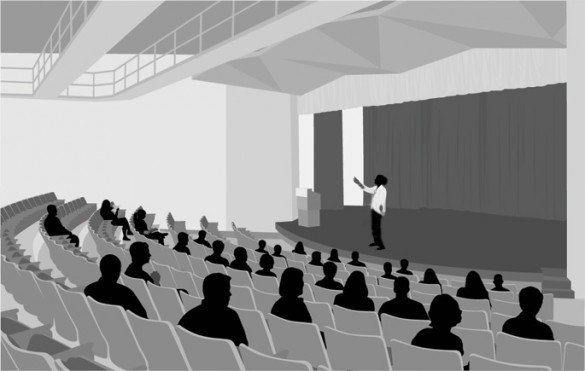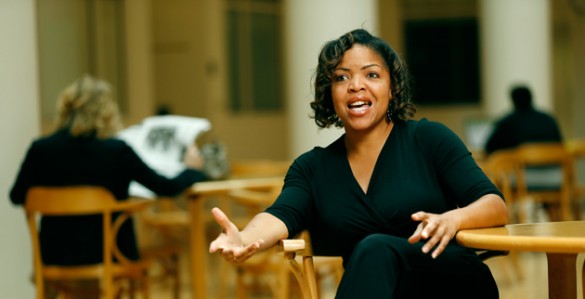
Black faculty members are expected to be “entertaining” when presenting academic research to mostly white peers, according to a new Vanderbilt study.
Thirty-three African American faculty members from institutions across the country were surveyed on their personal experiences, providing a unique perspective on “presenting while black.”
Ebony O. McGee, assistant professor of education, diversity and urban schooling at Vanderbilt’s Peabody College of education and human development co-directed the study.

Interviews with the scholars revealed that an overwhelming majority were advised regularly by white peers to be “more entertaining” when making research presentations, as well as to “lighten up” and “tell more jokes.”
Black females additionally noted being subject to their colleagues’ preoccupation with their clothing choices and hairstyle, and reported being admonished to play down their “passion” and “smile more.” In addition, nearly all reported overt racist remarks in regards to their academic presentations.
The study results were disappointing, but not particularly surprising, said McGee, a former engineer who advocates for people of color in the science, technology, engineering and mathematics (STEM) fields.
“These microaggressions harken to a long history of blacks being objectified for entertainment value, all the way back to the blackface minstrels shows, which depicted African Americans as comical, lazy or dim-witted,” she said. “Today the racialized objectification of African Americans may not always be as overt as it was a century ago, but the ‘black as entertainment’ ideology remains alive and well.”
The persistent racialized stigmatization of black faculty is particularly troubling given the low number (less than 9 percent, according to 2011 data from the National Center for Education Statistics) of black faculty working in higher education.
“Disproportional representation in the academy combined with chronic racialized microaggression introduces serious personal and career complexities for black scholars,” said co-investigator Lasana Kazembe, adjunct professor at DePaul University in Chicago. “The stunning lack of diversity among higher education faculty presents serious challenges to leveling and democratizing the educational playing field,” he said.
For any academic, presenting their research to peers can open doors to departmental collaborations, research funding opportunities and job offers. They must present effectively and persuasively to stand out from the crowd. But scholars of color face additional hurdles for acceptance that range from microaggressions to outright racism. Faced with “racial battle fatigue,” many try to change who they are in order to fit in, or simply give up and change careers.
“The academy is not as welcoming as it should be,” McGee said. “Universities and academic conferences need to work at creating a more inclusive environment, so that all voices are heard and celebrated. If we don’t deal with this, we will continue to lose a population of talented and promising researchers. Our hope is that this study will offer novel and useful insights to those who organize presentations and those who give them, so they will be able to understand, appreciate and provide an improved experience for black and other minoritized scholars.”
Read the paper, Entertainers or education researchers The challenges associated with presenting while black.